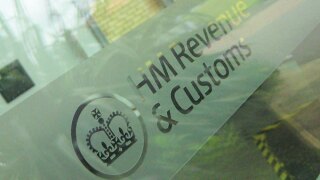DLA Piper’s co-head of tax for the US and Latin America tells ITR about her fervent belief in equal access to the law, loving yoga, and paternal inspirations
Tax expert Craig Hillier agrees with the comparison of pillar two to using a sledgehammer to crack a nut
The amount is reported to be up 57% from the £5.6bn that the UK tax agency believes was underpaid in the previous year
UK tax adviser ‘shocked’ at in-house costs criticism
It should be easy for advisers to be transparent about costs, Brown Rudnick partner Matthew Sharp said in response to ITR in-house data
Editorial Board
ITR is excited to unveil its inaugural Editorial Board, comprised of a select panel of tax industry experts
Featured Global Tax 50 profiles
ITR presents the 50 individuals who exerted the most influence on tax during 2024 – for better or worse – with world leaders, in-house award winners, activists and others making the cut
-
Sponsored by Morais Leitão, Galvão Teles, Soares da Silva & AssociadosRaquel Maurício of Morais Leitão, Galvão Teles, Soares da Silva & Associados examines recent Portuguese VAT changes aimed at urban rehabilitation and why legal uncertainties risk undermining the housing goals they aim to support
-
Sponsored by KPMG SwedenMarie Hedin and Jennifer van der Gronden of KPMG Sweden analyse a ruling that challenges the Swedish Tax Agency’s approach to revaluing intragroup services where no comparable market exists
-
Sponsored by Crowe Valente/Valente Associati GEB PartnersFederico Vincenti and Carola Valente of Valente Associati GEB Partners/Crowe Valente examine a recent ruling revisiting how control is defined in the context of transfer pricing regulations
Awards
Awards
ITR is delighted to reveal all the shortlisted nominees for the 2025 EMEA Tax Awards
Awards
ITR is delighted to reveal all the shortlisted nominees for the 2025 Asia-Pacific Tax Awards
Awards
World Tax global head of research Jon Moore tells ITR how his team spots standout submissions, and gives early statistical insights into this year’s entries
Awards
ITR invites tax firms, in-house teams, and tax professionals to make nominations for the 2025 ITR Tax Awards in the Americas, EMEA, and Asia-Pacific
Direct Tax
The fates of pillars one and two hang in the balance after the US successfully threw its weight around in G7 and Canadian negotiations
Rafael Tena tells ITR about the ‘crazy’ Mexican market, ditching the hourly rate, and refusing to grow his fledgling firm in an ‘unstructured way’
The sprawling legislation phases out Joe Biden-era green tax incentives for businesses; in other news, the UK will reportedly maintain its DST despite US pressure
New French legislation should create a more consistent legal environment for taxing gains from management packages, say Bruno Knadjian and Sylvain Piémont of Herbert Smith Freehills Kramer
Transfer Pricing
Grant Thornton’s Austria tax head likens his practice to an escape room, shares his football coaching ambitions, and explains why tax is cool
The South Africa vs SC ruling may embolden the tax authority to take a more aggressive approach to TP assessments, an adviser tells ITR
Despite posing significant administrative hurdles, digital services taxes remain ‘the best way forward’ for emerging economies, says Neil Kelley, COO of Ascoria
Representatives from the two countries focused on TP as they met this week to evaluate progress under a previously signed agreement – it is understood
Indirect Tax
Indirect tax professionals now rate compliance as a bigger obstacle than technology and automation; in other news, Italy approved a VAT cut on art sales
Winning the case against the 20% VAT imposition was always going to be an uphill challenge for the claimants, UK tax advisers argue
The long-awaited overhaul of Brazil’s tax systems will cause uncertainty for businesses. Experts from Lavez Coutinho argue it is essential for company leaders to get ahead of the issues
The UK has temporarily dodged the 50% rate due to a trade deal signed with the US in May; in other news, Ryan acquired a Northern Irish tax firm
Jurisdictions
Features and Special Focus























































